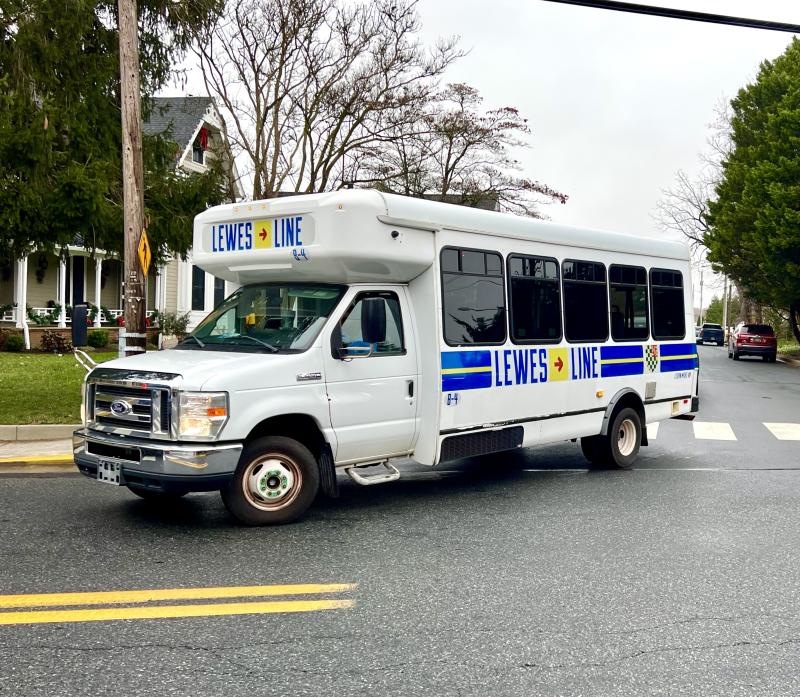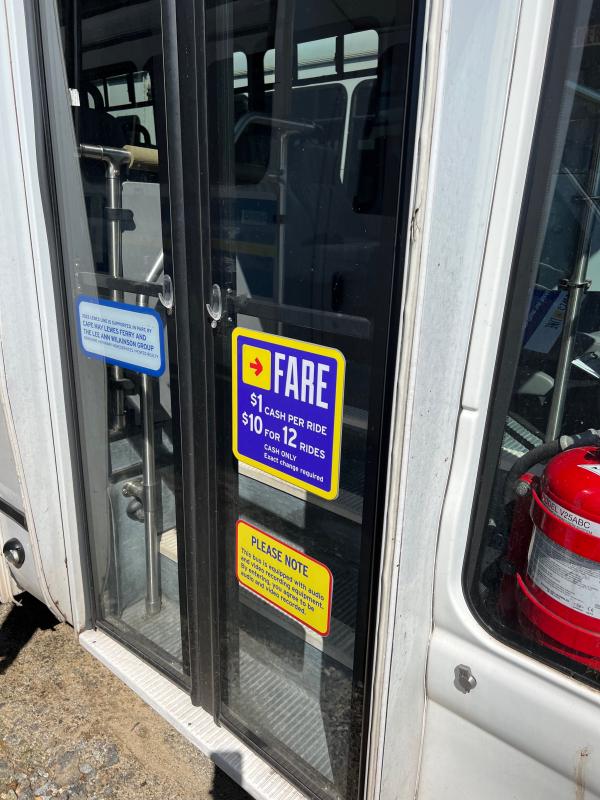End of the line could be near for Lewes Line
The future of the Lewes Line is tenuous at best after a city report showing that the bus service continued to lose money and had only a modest ridership gain in its second season.
Lewes Mayor and City Council came close to taking a vote on whether to continue the transit service at its Dec. 11 meeting, but the panel decided to wait and get feedback from its partners, the Delaware River and Bay Authority and DART, on ways to possibly salvage the service.
For now, Council decided to remove Lewes Line from budget discussions that are scheduled to start in early February.
The Lewes Line wrapped up its second season of a three-year pilot program Sept. 30.
“If you don’t try, you’ll never know. It was set out as a pilot to find out the needs,” said Councilwoman Carolyn Jones, who was a driving force behind its creation.
“It’s been renamed the ‘ghost bus,’” said Councilman Joe Elder, referring to the lack of riders.
Elder presented charts with data from a new city report that showed 85% of bus capacity went unused this year, with only three stops accounting for 82% of ridership.
He said taxpayer money could be better used to fix the city’s infrastructure.
The discussion on the Lewes Line began with the report by Acting City Manager Ellen Lorraine McCabe at council’s Nov. 30 workshop.
Her report said the Lewes Line was created to reduce parking and traffic congestion while enhancing safety throughout the city, and to improve circulation to services and businesses.
Lewes Line served 12 stops this season for $1 a ride.
McCabe said 6,393 people rode the Lewes Line this year, up from 6,266 in 2022. She said sales of frequent rider cards and card punches were both down slightly.
McCabe said the service had a combined operating deficit of just over $177,000 in its first two seasons. Council stressed that the Lewes Line was never intended to make a profit.
“Public transportation is supposed to be a service, not a revenue raiser, but we don’t want to throw money away either,” said Deputy Mayor Khalil Saliba.
McCabe said revenue from regular service dropped from $6,800 in 2022 to $6,664 this year. She said overall revenue dropped by about $36,000 from the first to the second year.
She said much of that decline is because the program received a $50,000 grant in 2022.
McCabe said extra-duty revenue generated by the Lewes Line more than doubled this season, from $1,200 in 2022 to $2,850 in 2023.
“This is where we have partnered with the historical society, the Zwaanendael Museum and the chamber of commerce to provide the Lewes Line with a means of transporting patrons on tours or to see different programs, such as the DeBraak artifacts at the state park,” McCabe said.
Lewes Line buses also provided transportation for the annual Holiday House Tour Dec. 2.
McCabe’s report showed the busiest stop on the line was the Cape May-Lewes Ferry terminal. The stops at Second and Market streets and the Zwaanendael Museum were the second and third busiest.
Mayor Andrew Williams said DRBA might want to continue some form of service, because there is a need to get people from the ferry terminal into downtown.
Elder suggested a private company might want to operate the line with electric vehicles.
Saliba said DART might want to operate it as an on-demand service, like Uber.
Lewes residents at the Nov. 30 workshop were split over whether the Lewes Line is worth the investment.
“I have believed in it from the beginning,” said Gail Van Gilder, who worked on the project when she was a member of the scenic byway committee. “This is a service. It’s not something you look at as a moneymaker.”
“I think we’re spending taxpayer money we shouldn’t be,” said John Cross. “If we’re trying to take care of parking and congestion, I don’t think this is doing it, because most of the ridership is coming from the ferry with walk-on passengers.”
There has not been a study done on the impact to traffic or the local economy.
The city has a lease for five buses through the summer of 2024.
In response to a Cape Gazette inquiry, McCabe said parking revenue was down slightly this season. She said 2023 revenue was $1,062,000, down from $1,064,417 last year.
Metered parking was in effect downtown from May 1 to Oct. 14 and at the beach from May 1 to Sept. 30. McCabe said she cannot make a connection between the drop in parking revenue and the operation of the Lewes Line.
The full Lewes Line report can be found at lewes.civicweb.net.
Bill Shull has been covering Lewes for the Cape Gazette since 2023. He comes to the world of print journalism after 40 years in TV news. Bill has worked in his hometown of Philadelphia, as well as Atlanta and Washington, D.C. He came to Lewes in 2014 to help launch WRDE-TV. Bill served as WRDE’s news director for more than eight years, working in Lewes and Milton. He is a 1986 graduate of Penn State University. Bill is an avid aviation and wildlife photographer, and a big Penn State football, Eagles, Phillies and PGA Tour golf fan. Bill, his wife Jill and their rescue cat, Lucky, live in Rehoboth Beach.


























































